Phensiri Charoensuk Redefines Success for Women, and Herself
She used to measure success in millions of pounds. Now she measures it in smiles
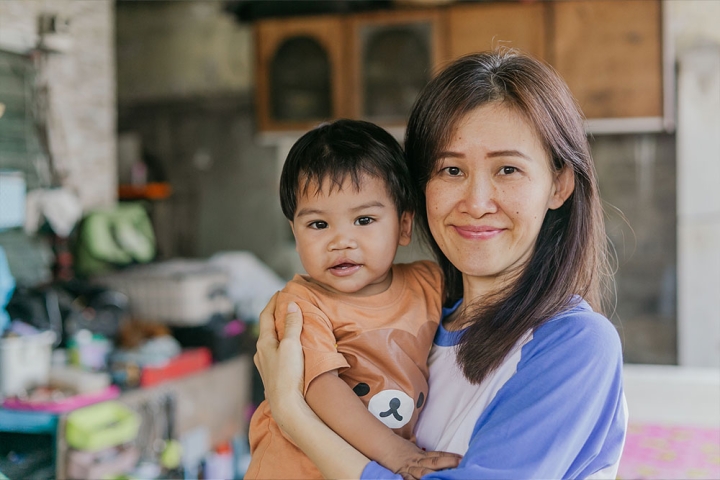
Though she’s lived almost her entire life in her hometown, Phensiri Charoensuk’s greatest passion is providing opportunities for others to get out and thrive.
She grew up in Bangkok attending the Assumption University Primary School, a prestigious Catholic institution with few other Thai students. She stayed through university to study international business relations with a focus on importing and exporting.
Only upon graduation did she realise that wasn’t at all what she wanted to do. She had to figure out something else, a whole new way of life. She stopped to think about what she had. She knew English like a native speaker, thanks to Assumption. She knew that she loved to talk, in English or in Thai. So this young woman who spent her whole life at the same school in the same city went to work at a travel agency as a negotiator, liaising with hotels to wrangle the best rates for her clients.
She was a natural. After five years, she was managing a big contract and had gained a reputation as one of the most respected members of her field in Thailand.
That meant it was time for a new challenge. She jumped over to work on the hotel side and, at 31, was named director of sales and marketing at a major chain — second only to the general manager.
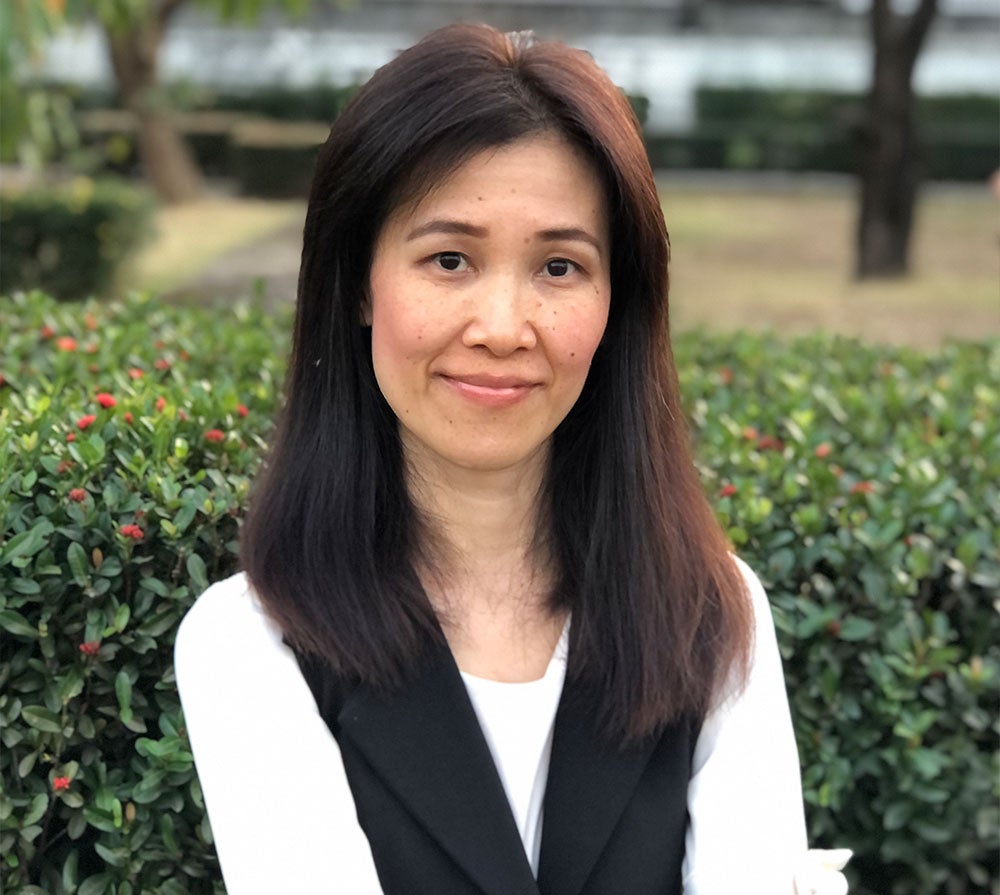
In this position, Phensiri oversaw a team of 20 employees spread across 45 hotels and ran the chain’s e-commerce platform. Under her watch, revenue rose from 600 million baht to 3 billion in five years.
“It was good fun,” she laughs. “A very good achievement for me.”
Once again, success made her restless. In 2018, after nearly 15 years in the industry, she decided to do some traveling of her own. She went to Vietnam on a five-year contract to work for a boutique resort there.
The fun stopped when COVID hit the hotel industry like a meteor. She served out her contract, then came home to Bangkok in search of something new.
She found a job posting from Smile Train on LinkedIn and sent in her CV. Five minutes later, she received a call back from the head of our Southeast Asia programmes. Was she free for an interview?
“I was like, ‘What, really? That was too quick!’ That had never happened before in my entire life. I was still shocked, but I agreed to have the interview then.”
Phensiri had never worked for an NGO, had never really considered it before now. But when she learned she was hired as our new Programme Manager for Thailand, Cambodia, and Laos, she experienced another career first: She jumped up and down and started to cry.
And then she got to work.
Seizing Every Opportunity
Unlike other cleft charities that send outside doctors into — then out of — other countries on one- to two-week cleft “surgical missions,” Smile Train’s sustainable model trains, equips, and empowers local healthcare professionals around the world to provide multi-disciplinary cleft care that is safe, high-quality, multidisciplinary, and free at more than 1,200 community medical facilities in 75+ countries. Based in more than two dozen countries, Smile Train Programme Directors and Programme Managers are the people who keep this lifesaving care going strong at our existing partners and work to expand it to new ones.
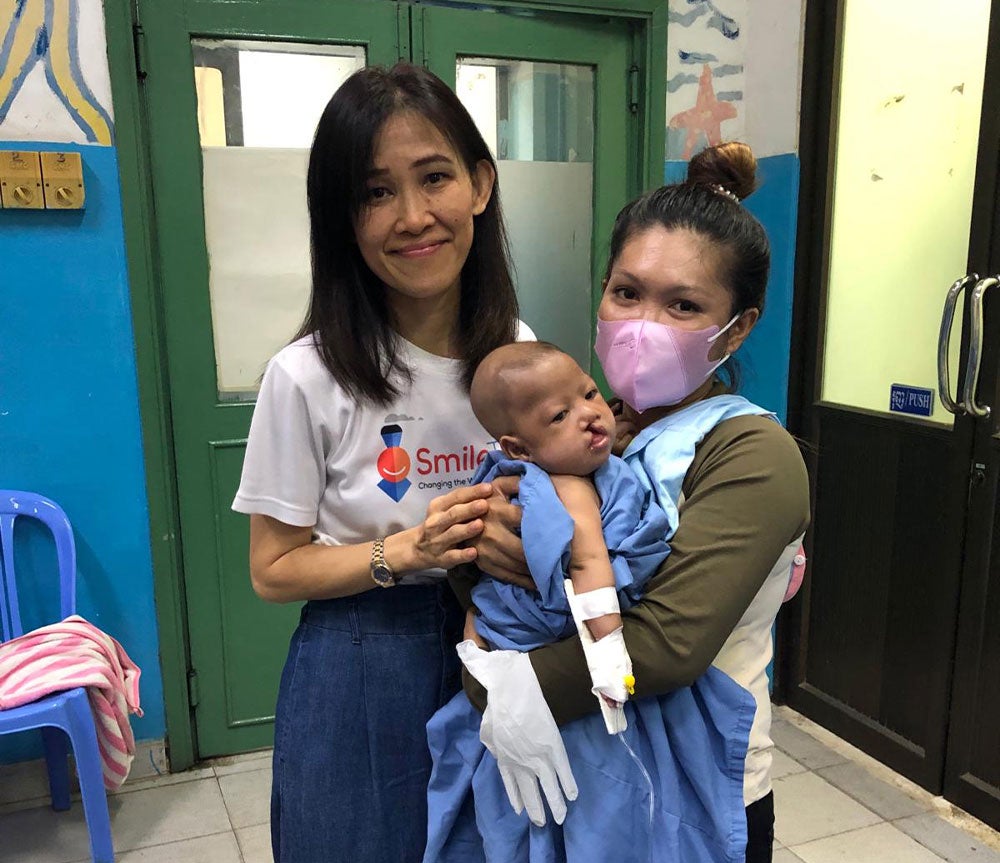
It's a demanding job that’s different every day in every country, but Thailand is a unique challenge. Unlike almost everywhere else Smile Train works, the Thai government completely funds the cost of cleft surgeries and other comprehensive cleft care for all of its citizens.
So why do they need us? Because that’s still not enough. While the government funds surgery, there is much less funding for the other vital treatments children with clefts need, including nutritional support, orthodontics, and speech therapy. What’s more, Thai healthcare workers often are not specially trained in the latest cleft care techniques and technologies.
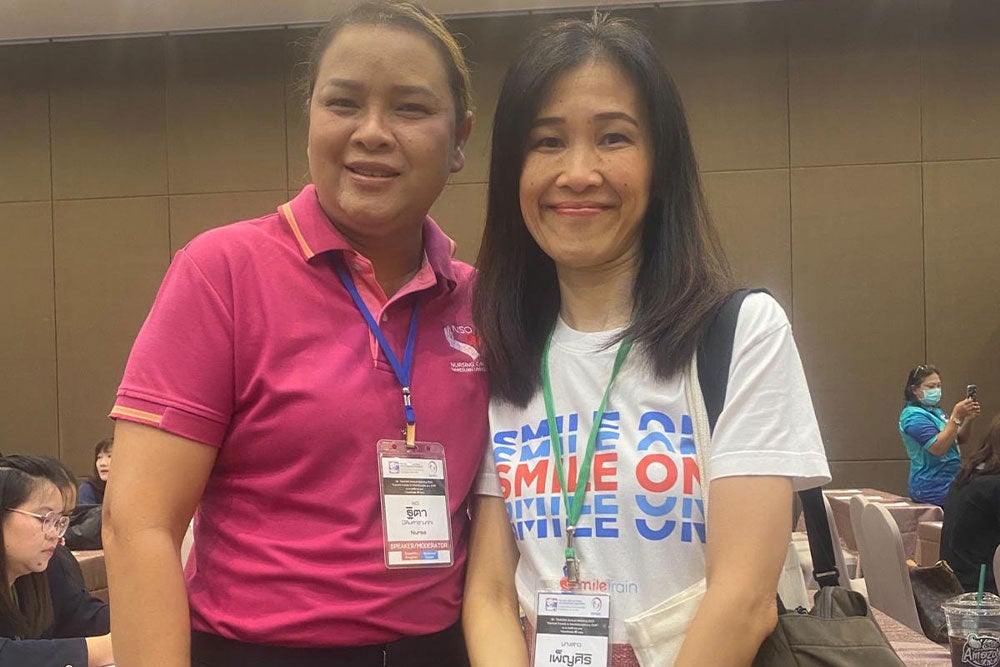
In these cases, Smile Train trains these professionals to further their skills, then — in line with our model — go on to train others.
And while the government funds surgeries for citizens, Thailand has a large immigrant population that does not receive this benefit. When they have a baby with a cleft, Smile Train steps in to make sure their children can smile and thrive, too.
Perspective and Patience
These unique issues require a unique perspective. That’s where Phensiri shines.
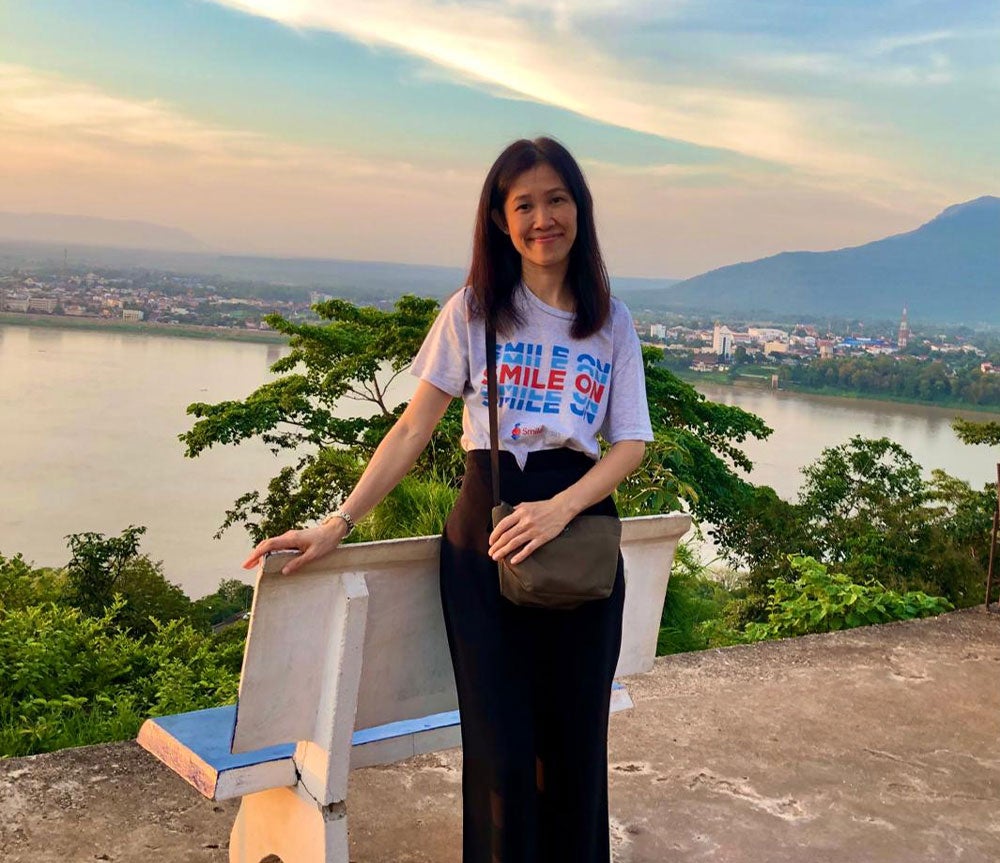
“When you are in negotiations with hotels, you need a lot of different approaches so they know they can trust you and work with you, so you can build a rapport. Those are the same skills that I use now with the partner hospitals,” she says, adding that, in both cases, the secret ingredient to success is the same: “Patience, patience, patience. You need patience.”
Patience is how she builds partnerships with Thai cleft teams who are sometimes skeptical of why they should be involved with us. Patience is how she continues to build up cleft care infrastructure in Cambodia and Laos, where the government does not fund cleft surgery. Patience is how she helps children with clefts and their families in all her countries agree to take advantage of the opportunity she is offering them.
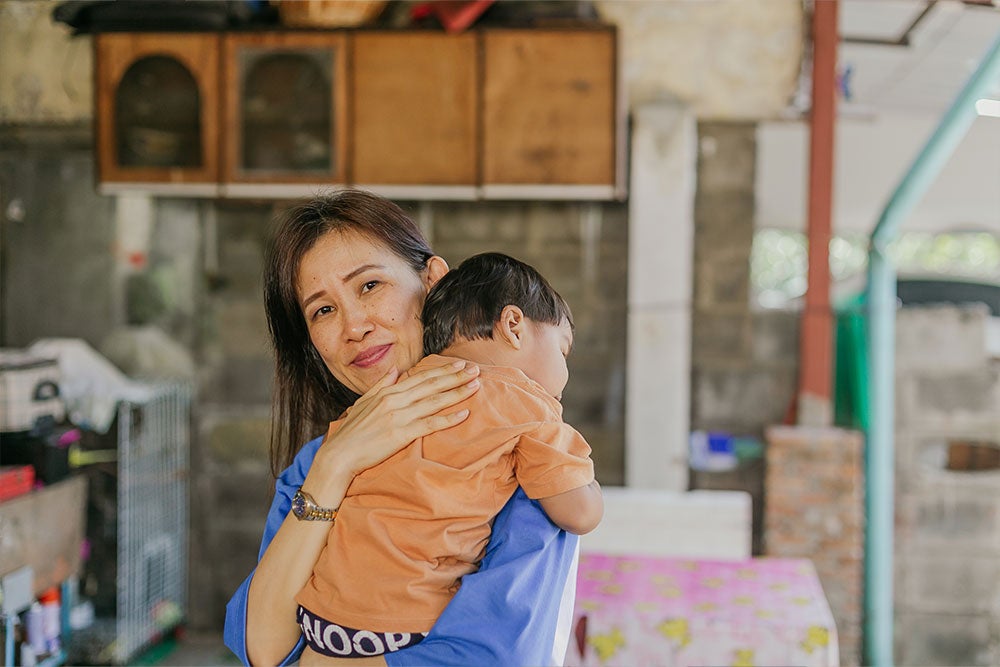
“A lot of the time, it is extremely hard to organise a visit to a patient’s home because in Southeast Asia, clefts can be something of a myth and people do not believe that they are something that they need to show in public. They don’t want their baby exposed to anybody. Even if they’ve received surgery already, they still don't feel like it is easy or good for them to show them outside.”
One of her most powerful tools in debunking myths around clefts and convincing these families to bring their children outside is another thing she learned from her previous career: The necessity of meeting people where they are. In Thailand, they are on Facebook. Thais use the social network as a source of news and information; according to Phensiri, they often have their pages up and running all the time so they don’t miss anything.
So she spends a lot of her time on Facebook, too: she set up Smile Train Thailand’s Facebook page, constantly monitors private groups for cleft-affected families, and shares success stories. Even without spending a single baht on the platform, she has convinced dozens of families to bring their children for care and started the process of lessening the stigma around clefts. It is slow going, but she is patient.
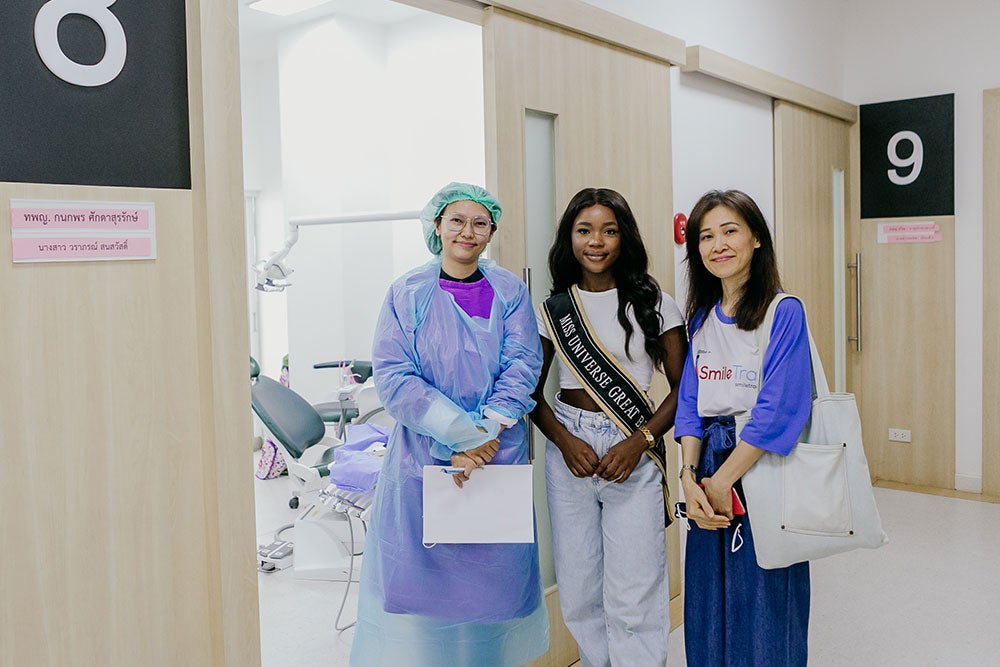
“These families are looking for help, and I am very happy because the more I do on Facebook, the more information they will find and the better we can help them,” she said. “I keep growing my page one person at a time, one person at a time, and I'm also very happy that sometimes, when I receive a request or comment from a cleft-affected family, surprisingly, it is from someone in Laos who doesn't even type in Thai.”
Maximising Return on Investment
It’s been two years since Phensiri left 24 years of creating opportunities for international jet setters behind to create them instead for families who sometimes can’t even leave home because of how their child was born. She no longer measures success in the billions of bahts. And she’s never been happier.
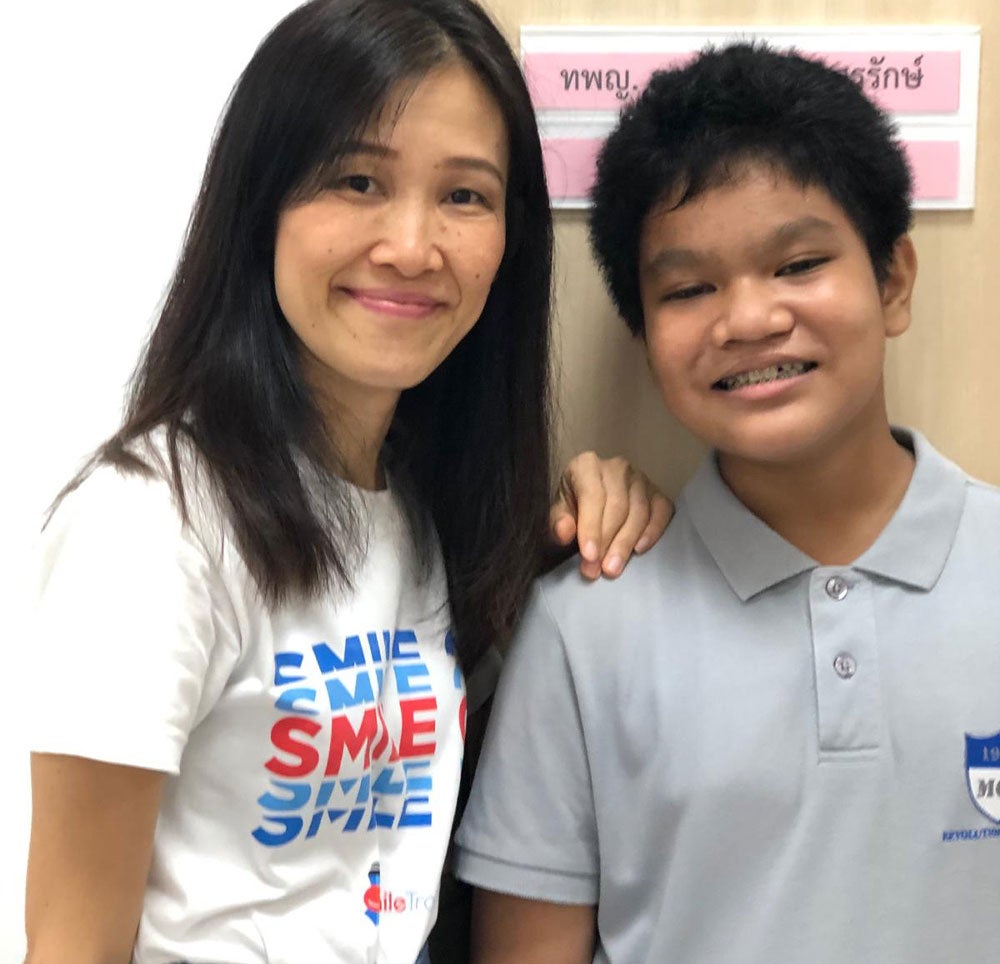
“Everything that I do, no matter how hard it is or how tired I am, I really feel that that it means something to someone. Especially when I see babies in the operating rooms with their moms and they’re both crying, I actually cry too. I know I am doing the right thing with my life. I am proud of myself.”
A New Model of Success
Phensiri is our inspiration each day. So in honour of International Women’s Day, we asked this high-flying woman what her advice is to girls with clefts in Southeast Asia and beyond and what this year’s International Women’s Day theme, #InspireInspiration, means to her. Her answers show that women don’t have to compromise on their values to get ahead. She would know.
I want girls with clefts to love themselves and I want them to know that Smile Train is always here. Even though you don't see us, we are always here, and we are here for your parents as well. Never give up. You will always have support.
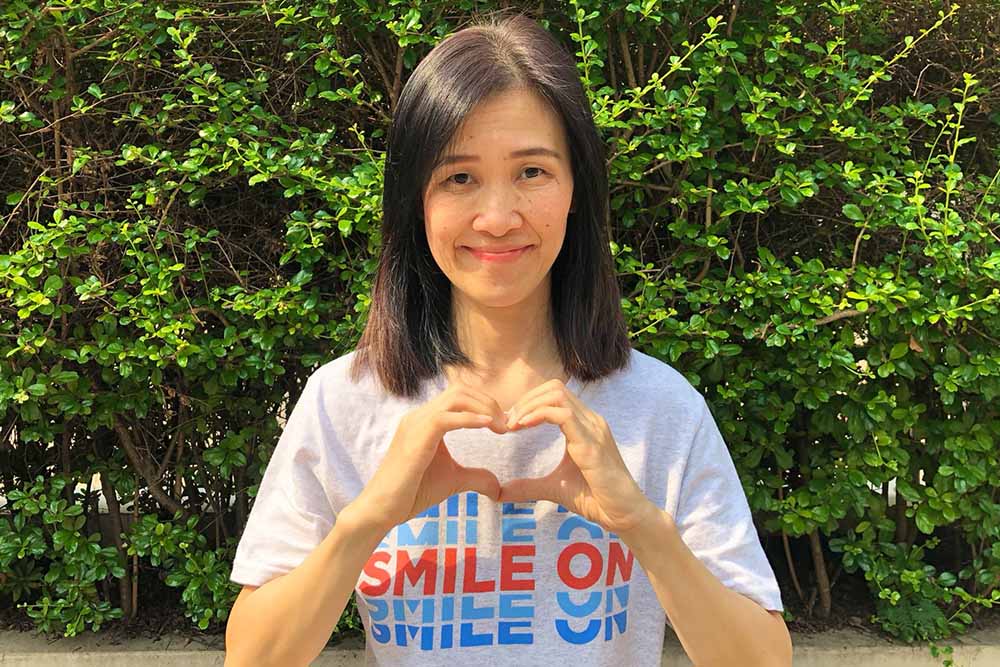
When I think of #InspireInclusion, I think of two ladies. One is a member of our local Medical Advisory Council and the other is a very young professional orthodontist who is a partner of ours. They inspire inclusion to me, because those who really, genuinely work for others and do things for others are always the greatest inspiration for me.
Phensiri can only open new opportunities for children with clefts across Southeast Asia each day because of people like you.




